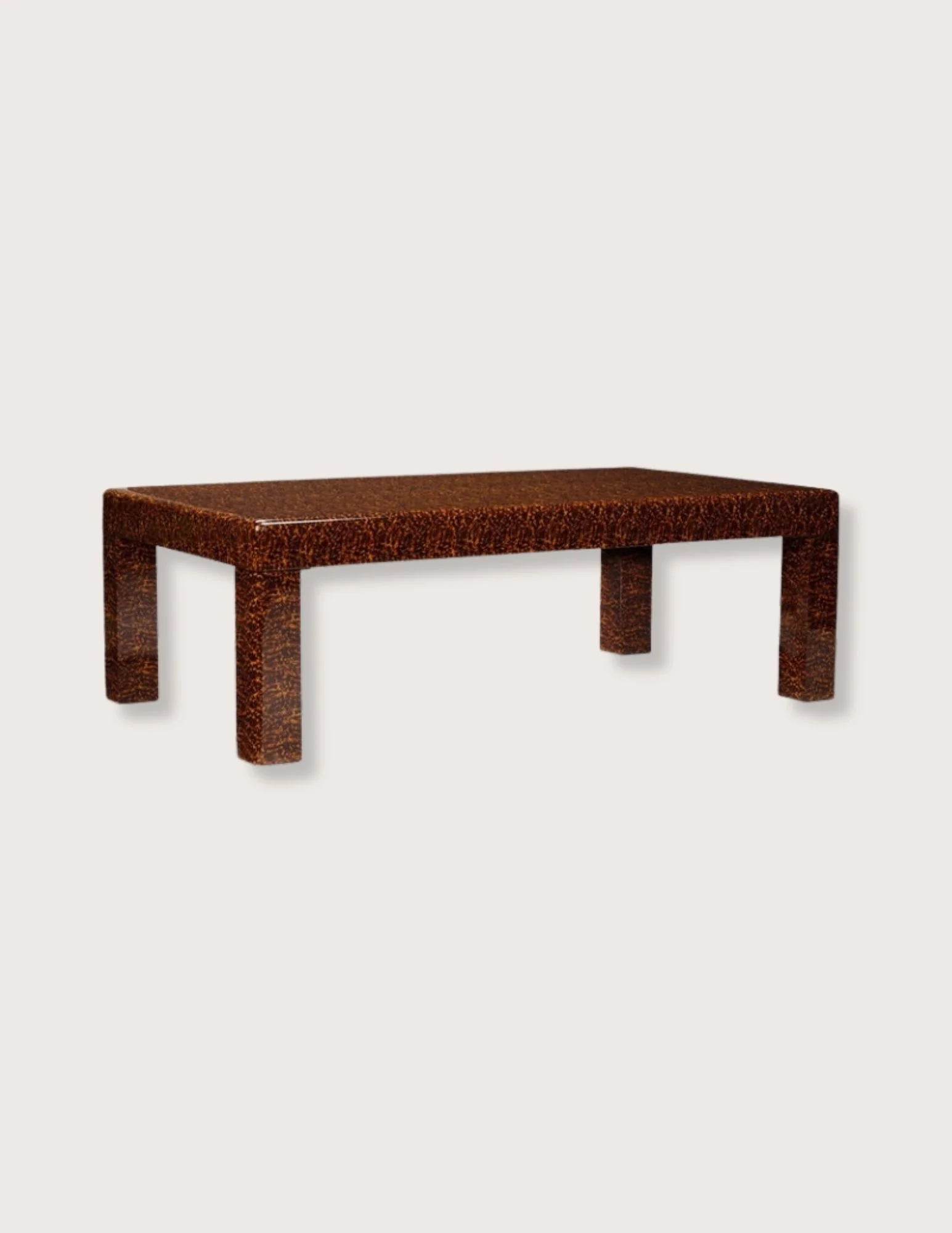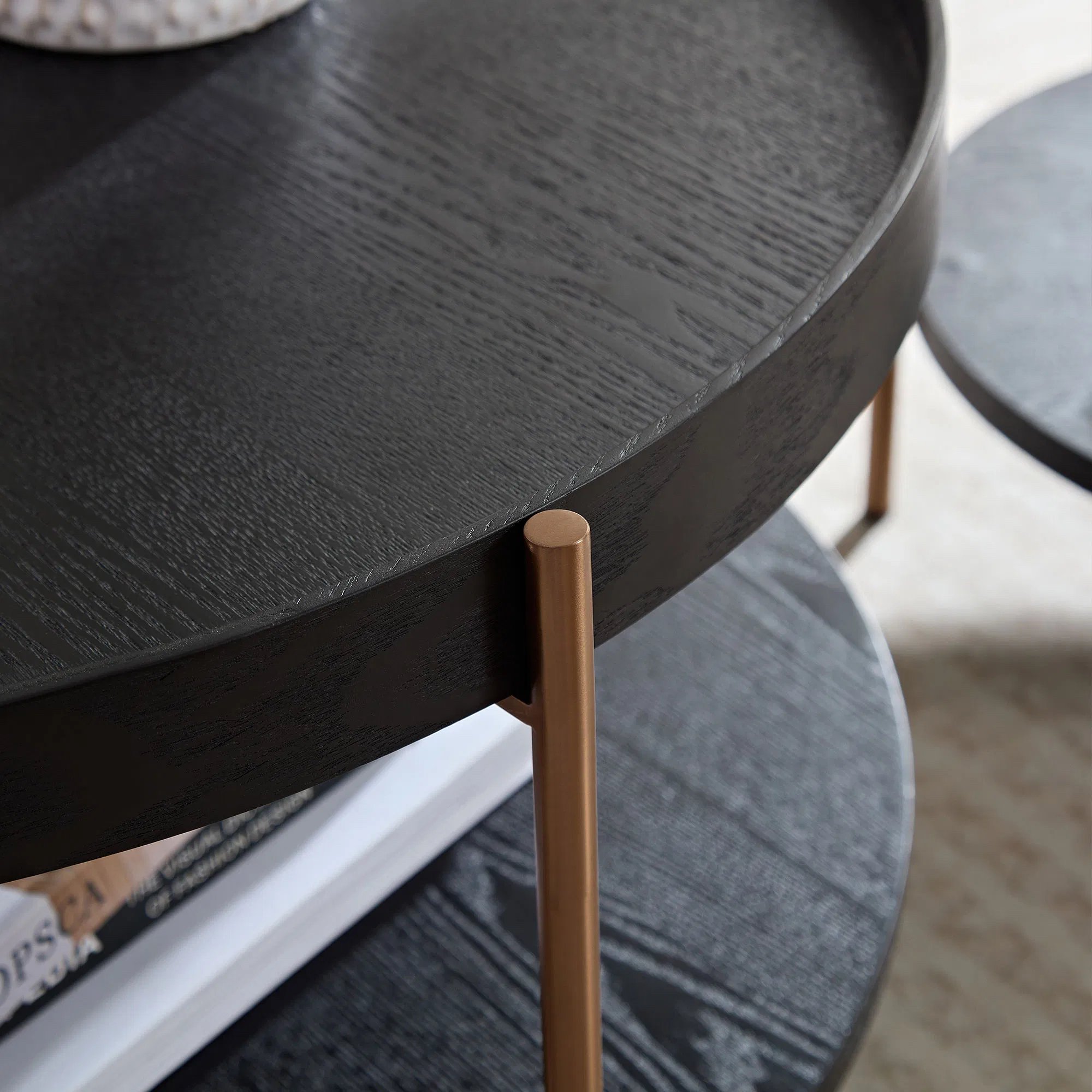 Image 1 of 4
Image 1 of 4

 Image 2 of 4
Image 2 of 4

 Image 3 of 4
Image 3 of 4

 Image 4 of 4
Image 4 of 4





Du Bois Accent Table
Details
The Du Bois Accent Table is a sculptural statement piece for the home, handcrafted from solid mango wood in a rich chestnut finish. Its striking turned pedestal base adds dramatic flair, while the smooth marble top offers a refined contrast in tone and texture. Designed for compact sophistication, this table is perfect for holding a book, a drink, or a decorative accent beside your favorite armchair or in an entryway. A timeless blend of elegance and strength, the Du Bois Accent Table elevates any corner with quiet confidence.
Editors' Note
This collection is named for the scholar, educator, activist, author and architect, William Edward Burghardt (W.E.B.) Du Bois, whose life and career would span the best part of a century and shape the course of global Black culture for generations to come. A pivotal, yet largely overlooked architect of modern sociology, Du Bois’ prolific writings are not only foundational to the canon of African American and Pan-African thought, they also form a substantial part — and pose a meaningful critique — of the broad cannon of sociology which was being written at much the same time by contemporaries such as Max Weber and Emile Durkheim. Even prior to his fame however, Du Bois’ personal history is a striking example of the diversity of Black experience even in the years immediately following the Civil War. Born in 1863, in Great Barrington, Massachusetts, Du Bois grew up in a mostly white community that both recognized and championed his intellect and academic ambitions from an early age. His education took him to Fisk University, from which he graduated in 1888, before becoming the sixth African American admitted to Harvard University and the first to receive a doctorate from the institution in 1895. While at Fisk, Du Bois spent summers teaching in rural areas, encountering, perhaps for the first time, the wider experiences of African Americans in the American south. Before graduating from Harvard, Du Bois spent two years at the University of Berlin. An advocate of the intersection of the academy and the arts in the creation and shaping of culture, Du Bois was one of a very few scholars whose social and cultural impact equaled and even exceeded his academic standing. The founder of the Atlanta School of Sociology at Atlanta University (now Clark Atlanta), Du Bois’ many works, including The Philadelphia Negro, The Souls of Black Folks, Darkwater, and The Gift of Black Folk: The Negroes in the Making of America — to name a very few — are now being recognized by scholars as “the real foundation stone of sociological research in the United States.” At the same time, as one of the founders of the NAACP and founder and first editor of its periodical, The Crisis, Du Bois was a pivotal figure in promoting and shaping the explosion of Black culture that came to be known as the New Negro Movement, and later as the Harlem Renaissance. Politically, Du Bois was similarly active, convening the first four Pan-African Congresses and presiding over the fifth. In 1945, he was present as an NAACP delegate at the meeting in San Fransisco where the United Nations was born. In 1951, he wrote the powerful, We Charge Genocide, a treatise he submitted to the UN, indicting the United States for sanctioning systemic violence against its Black citizens. That same year, as the new chair of the Peace Information Center (PIC), Du Bois was targeted by Senator Joseph McCarthy and tried alongside other PIC leaders for suspicion of acting as agents of foreign powers. Du Bois’ case was dismissed when the judge was informed that Albert Einstein was to appear as a character witness on his behalf, though the American government denied him a passport for the next eight years. Meanwhile, as the Pan-African movement progressed and colonized nations in Africa and the Caribbean moved closer to independence, Du Bois remained fully aware of the crucial role of the cultural and creative in the realms of politics and society, collaborating with Ghana’s first president, Kwame Nkrumah to pioneer the highlighting of Ghanian Kente-cloth as a fashion staple and symbol of Pan-African identity, creating a trend that would continue to be the center of Afrocentric style well into the 90s. In 1961, Du Bois, then 93, traveled with his wife to Ghana. Refused a passport to return, he became a Ghanaian citizen in 1963. Du Bois passed away later that year at the age of 95. A tireless advocate for the culture, education and liberation of Black people all over the world, Du Bois’ work never truly ended, despite his advanced age. At the time of his death he was working on The Encyclopedia Africana, an encyclopedia of the African Diaspora that he had proposed to Kwame Nkrumah in 1960.
Details
The Du Bois Accent Table is a sculptural statement piece for the home, handcrafted from solid mango wood in a rich chestnut finish. Its striking turned pedestal base adds dramatic flair, while the smooth marble top offers a refined contrast in tone and texture. Designed for compact sophistication, this table is perfect for holding a book, a drink, or a decorative accent beside your favorite armchair or in an entryway. A timeless blend of elegance and strength, the Du Bois Accent Table elevates any corner with quiet confidence.
Editors' Note
This collection is named for the scholar, educator, activist, author and architect, William Edward Burghardt (W.E.B.) Du Bois, whose life and career would span the best part of a century and shape the course of global Black culture for generations to come. A pivotal, yet largely overlooked architect of modern sociology, Du Bois’ prolific writings are not only foundational to the canon of African American and Pan-African thought, they also form a substantial part — and pose a meaningful critique — of the broad cannon of sociology which was being written at much the same time by contemporaries such as Max Weber and Emile Durkheim. Even prior to his fame however, Du Bois’ personal history is a striking example of the diversity of Black experience even in the years immediately following the Civil War. Born in 1863, in Great Barrington, Massachusetts, Du Bois grew up in a mostly white community that both recognized and championed his intellect and academic ambitions from an early age. His education took him to Fisk University, from which he graduated in 1888, before becoming the sixth African American admitted to Harvard University and the first to receive a doctorate from the institution in 1895. While at Fisk, Du Bois spent summers teaching in rural areas, encountering, perhaps for the first time, the wider experiences of African Americans in the American south. Before graduating from Harvard, Du Bois spent two years at the University of Berlin. An advocate of the intersection of the academy and the arts in the creation and shaping of culture, Du Bois was one of a very few scholars whose social and cultural impact equaled and even exceeded his academic standing. The founder of the Atlanta School of Sociology at Atlanta University (now Clark Atlanta), Du Bois’ many works, including The Philadelphia Negro, The Souls of Black Folks, Darkwater, and The Gift of Black Folk: The Negroes in the Making of America — to name a very few — are now being recognized by scholars as “the real foundation stone of sociological research in the United States.” At the same time, as one of the founders of the NAACP and founder and first editor of its periodical, The Crisis, Du Bois was a pivotal figure in promoting and shaping the explosion of Black culture that came to be known as the New Negro Movement, and later as the Harlem Renaissance. Politically, Du Bois was similarly active, convening the first four Pan-African Congresses and presiding over the fifth. In 1945, he was present as an NAACP delegate at the meeting in San Fransisco where the United Nations was born. In 1951, he wrote the powerful, We Charge Genocide, a treatise he submitted to the UN, indicting the United States for sanctioning systemic violence against its Black citizens. That same year, as the new chair of the Peace Information Center (PIC), Du Bois was targeted by Senator Joseph McCarthy and tried alongside other PIC leaders for suspicion of acting as agents of foreign powers. Du Bois’ case was dismissed when the judge was informed that Albert Einstein was to appear as a character witness on his behalf, though the American government denied him a passport for the next eight years. Meanwhile, as the Pan-African movement progressed and colonized nations in Africa and the Caribbean moved closer to independence, Du Bois remained fully aware of the crucial role of the cultural and creative in the realms of politics and society, collaborating with Ghana’s first president, Kwame Nkrumah to pioneer the highlighting of Ghanian Kente-cloth as a fashion staple and symbol of Pan-African identity, creating a trend that would continue to be the center of Afrocentric style well into the 90s. In 1961, Du Bois, then 93, traveled with his wife to Ghana. Refused a passport to return, he became a Ghanaian citizen in 1963. Du Bois passed away later that year at the age of 95. A tireless advocate for the culture, education and liberation of Black people all over the world, Du Bois’ work never truly ended, despite his advanced age. At the time of his death he was working on The Encyclopedia Africana, an encyclopedia of the African Diaspora that he had proposed to Kwame Nkrumah in 1960.

Additional Details
Mango Wood Accent Table
Color: Chestnut Finish
Material: Mango Wood, Marble
Height: 23.62"
Width: 14.96"
Depth: 14.96"
Weight: 26.46 lbs
Seating Capacity: 40 lbs
Handmade in India
Made to order
Ships free, worldwide in 12–16 weeks


























